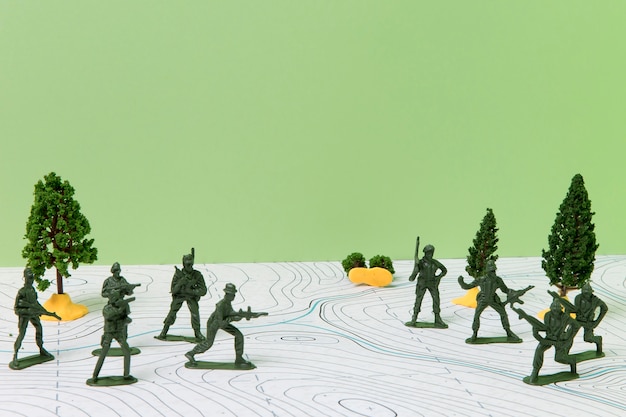

Trench warfare was a defining feature of World War I.
The conditions in the trenches were incredibly harsh and challenging.
Trench warfare led to a stalemate on the Western Front.
Soldiers lived in constant fear of shells and sniper attacks in the trenches.
Trench foot was a common ailment suffered by soldiers due to the wet conditions.
The trenches were dug in a zigzag pattern to prevent an enemy from firing straight down the line.
Communication between trenches was achieved through the use of runners or carrier pigeons.
Trench warfare revolutionized military tactics during World War I.
The trenches extended for miles along the front lines.
Soldiers often had to eat cold rations and sleep in uncomfortable conditions in the trenches.
Trench warfare led to the introduction of new weapons, such as poison gas and flamethrowers.
The constant bombardment led to many soldiers suffering from shell shock.
Trenches were reinforced with sandbags to provide some protection from artillery fire.
Soldiers faced the constant threat of disease due to the unsanitary conditions in the trenches.
Many battles during World War I were fought over just a few hundred yards of territory in the trenches.
Trench warfare required soldiers to dig in and defend their positions for long periods of time.
The trenches were divided into different sections, such as front line, support, and reserve trenches.
The strength of the trenches made it difficult for either side to gain a significant advantage.
The trenches often became waterlogged due to rain and poor drainage systems.
Trench warfare changed the way wars were fought and influenced military strategies in later conflicts.
Soldiers in the trenches had to contend with constant noise and a lack of privacy.
Many soldiers suffered from trench fever, a disease transmitted by body lice.
The constant presence of rotting bodies and the smell of decay affected the soldiers’ morale.
Trenches were often booby-trapped to deter enemy advances.
Soldiers often used periscopes to observe the enemy without exposing themselves to gunfire.
Trench warfare created a sense of camaraderie and loyalty among the soldiers.
The living conditions in the trenches were unimaginably difficult compared to civilian life.
Soldiers faced the constant challenge of maintaining their mental and physical health amidst the horrors of trench warfare.
The noise and chaos in the trenches made it difficult for soldiers to get a good night’s sleep.
Trenches were often infested with rats, which were attracted by the abundance of food scraps.
Trench warfare necessitated the creation of advanced systems for manufacturing and supplying weapons.
The trenches were often reinforced with barbed wire to slow down enemy advances.
Soldiers had to be constantly vigilant for enemy attacks or potential gas leaks in the trenches.
Trench warfare resulted in an immense loss of life on both sides of the conflict.
The confined space of the trenches meant that soldiers were constantly exposed to violence and death.
Many soldiers suffer from trench mouth, a painful gum disease caused by poor oral hygiene.
Trench warfare required soldiers to become adept at hand-to-hand combat.
The trenches were a breeding ground for many diseases, including dysentery and trench fever.
Soldiers often developed close relationships with their fellow soldiers, relying on them for support and survival.
Trench warfare led to the development of specialized trench weapons, such as trench knives and entrenching tools.
Many soldiers experienced severe psychological trauma as a result of their time in the trenches.
Trench warfare forced soldiers to adapt to a life of constant danger and uncertainty.
The trenches were often filled with mud and water, making it difficult for soldiers to move around.
Trench warfare highlighted the importance of teamwork and strategy in battle.
The memories of the horrors of trench warfare haunted many soldiers long after the war had ended.
Around the world, coffee enthusiasts enjoy Monin coffee concentrate since it is a multipurpose product. Conveniently combining…
The Importance of Choosing the Right Shower for Your Bathroom Renovating your bathroom can be…
Usain Bolt holds the record for the fastest 100-meter sprint in history.Bolt was named Sportsman…
Love is in the air... and it smells suspiciously like chocolate!Roses are red, violets are…
Life's a beach, take a picture and relax.Sun, sand, and salty kisses. That's what beach…
Hungary is home to the largest thermal water cave system in the world.The Rubik's Cube…